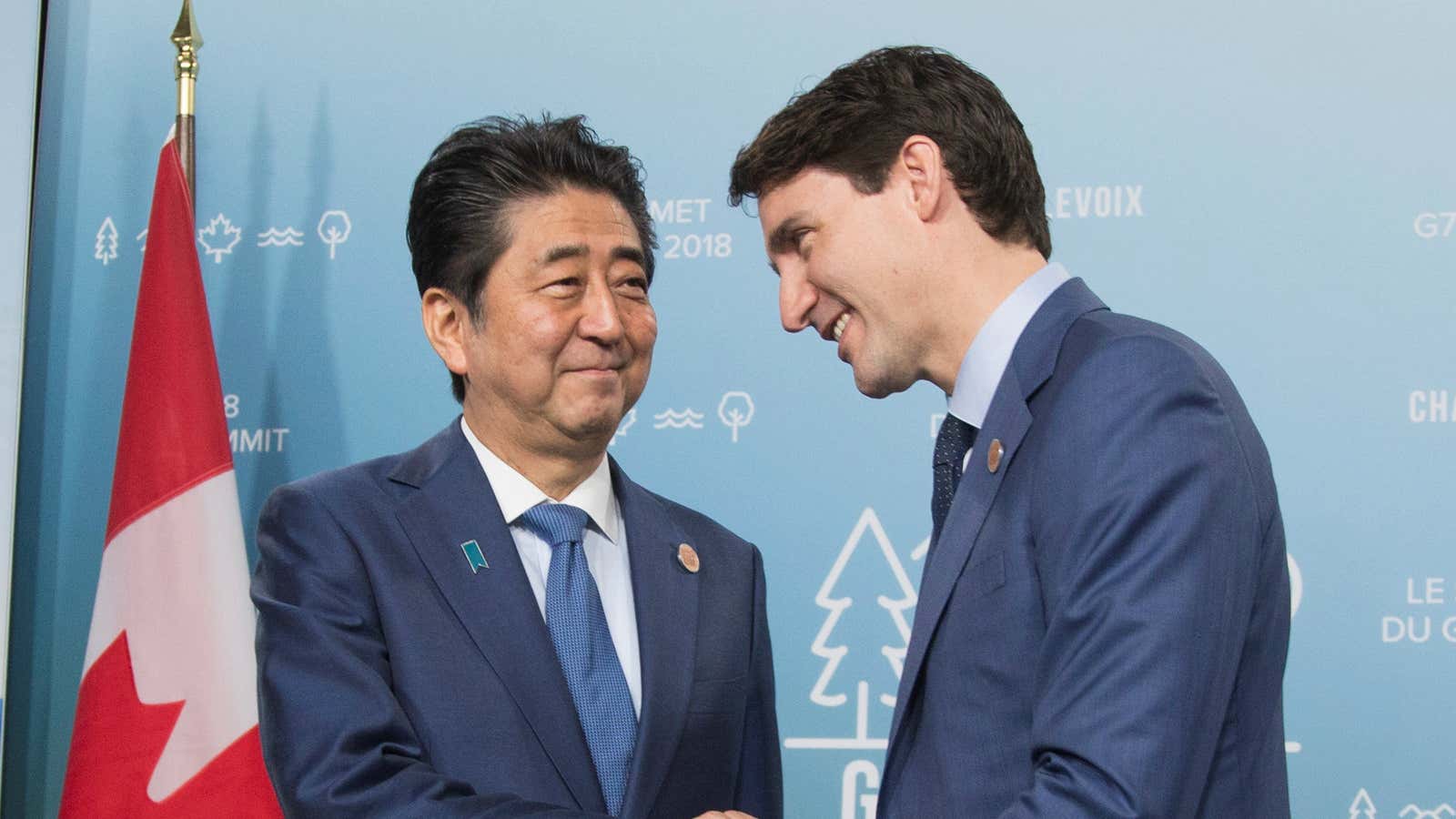The CPTPP is ready for takeoff. The trade deal was recently ratified by Canada, and Australia says it will do the same soon. Japan, Mexico, New Zealand, and Singapore have already ratified it. With six countries on board, the pact will provisionally go into effect.
The CPTPP is the successor to the Trans-Pacific Partnership (TPP), a similar deal that included the US. Donald Trump withdrew the US from the TPP soon after he was elected. During his presidential campaign, Trump referred to the TPP as the “greatest danger yet” to the US economy, and has declared a preference for bilateral trade agreements since coming into office. Former US president Barack Obama pushed for the deal because he said it would let the US, not China, “lead the way on global trade.”
CPTPP stands for the Comprehensive and Progressive Agreement for Trans-Pacific Partnership, but you can also just call it TPP without the US.
The other 11 countries in the deal, which also includes Brunei, Chile, Malaysia, Peru, and Vietnam, were undeterred by the US’s withdrawal from TPP. Even without the US, the new pact will be among the largest multilateral trade deals ever enacted (paywall). The CPTPP countries include 14% of world GDP. Beyond just lowering trade barriers between the countries, the deal also includes greater protection of intellectual property rights—a part of the deal the US fought for—and provisions to increase minimum labor standards for workers in participating countries.
If Australia ratifies the CPTPP this week, it means that the deal can fully go into effect during the 2018 calendar year. This is important because it means that the first round of tariff reductions can happen this year, and the second round at the beginning of 2019. (Tariff reductions can only happen once a year in each country.)
The non-profit Peterson International Institute for Economics estimates that the total GDP of participating countries will increase by about 1.7%, with the largest gains for Vietnam and Peru. They also estimate that, overall, the US will be worse off due to the deal because US exports will now be less competitive in CPTPP nations.
